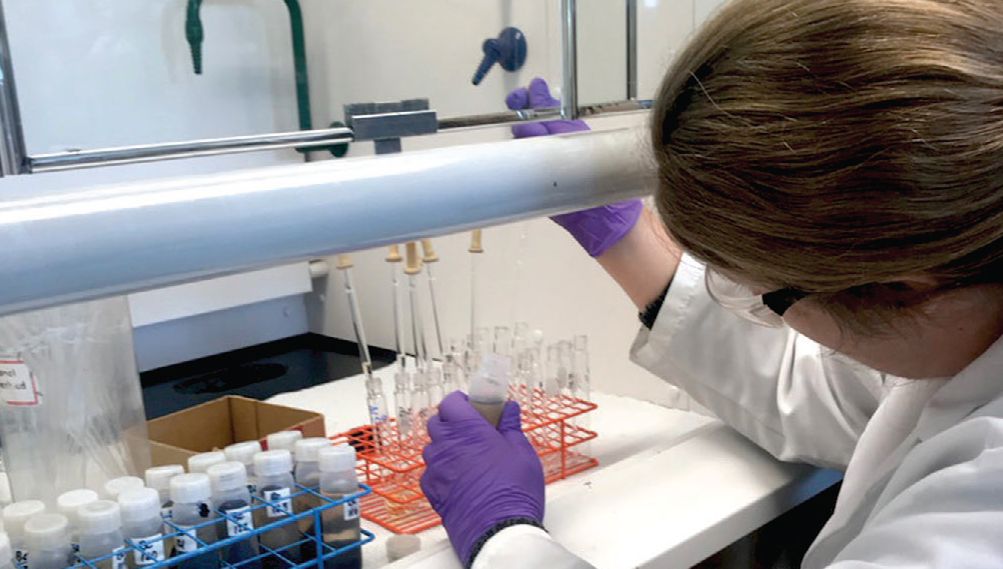
Coal char research in the Department of Agronomy and Horticulture was highlighted in a summary of the Journal of Environmental Quality article “Coal Char Mitigates Nutrient Loss from Soil” published in the April issue of CSA News magazine.
CSA News is the official magazine for members of the American Society of Agronomy, Crop Science Society of America and Soil Science Society of America, featuring research highlights; member news, science policy, and meetings news; and career and education information.
Jennifer Cooper, a former postdoc working in Assistant Professor Michael Kaiser’s lab, explains how manure can serve as a more sustainable substitute for synthetic fertilizer but may elevate greenhouse gas emissions and nutrient leaching. Large-scale biochar application may ameliorate nutrient losses but is hindered by high cost; therefore, incomplete coal combustion residue (char), a minimum-cost alternative, may provide a more viable option to farmers.
In the article published in the Journal of Environmental Quality, Nebraska researchers compare the performance between char and high-temperature pine biochar for nutrient losses via soil leachate, microbial biomass, plant yields and greenhouse gas emissions in two contrasting soils amended with dairy or swine slurry.
The study found up to 26% less leaching losses for phosphate and up to 9% less leaching losses for dissolved organic carbon in char amended soil compared with biochar-amended soil. However, plant yields were significantly higher with biochar, maybe due to the greater nitrate retention in the soil compared with the char-amended soils.
Depending on soil characteristics, char may outcompete biochar with respect to the reduction of phosphate and dissolved organic carbon leaching. Unlike biochar, some char N seems to be available, and this should be accounted for when considering application rates.
See summary in CSA News.
Kaiser earned a diploma in Geoecology and a doctorate in Natural Sciences from the University of Potsdam, Germany. He also completed his habilitation, a qualification to conduct self-contained university teaching, in soil chemistry at the University of Kassel, Germany.
He has been working at the University of Nebraska–Lincoln for four years. Kaiser’s main area of focus is soil organic matter dynamics. His research lab has been studying the effects of cover crops, compost, char and biochar on the storage and stabilization of organic matter in surface and subsurface soil. Another focus area is the elucidation of carbon and nitrogen dynamics in soils deeper than 1 meter.
More details at: https://go.unl.edu/rqid